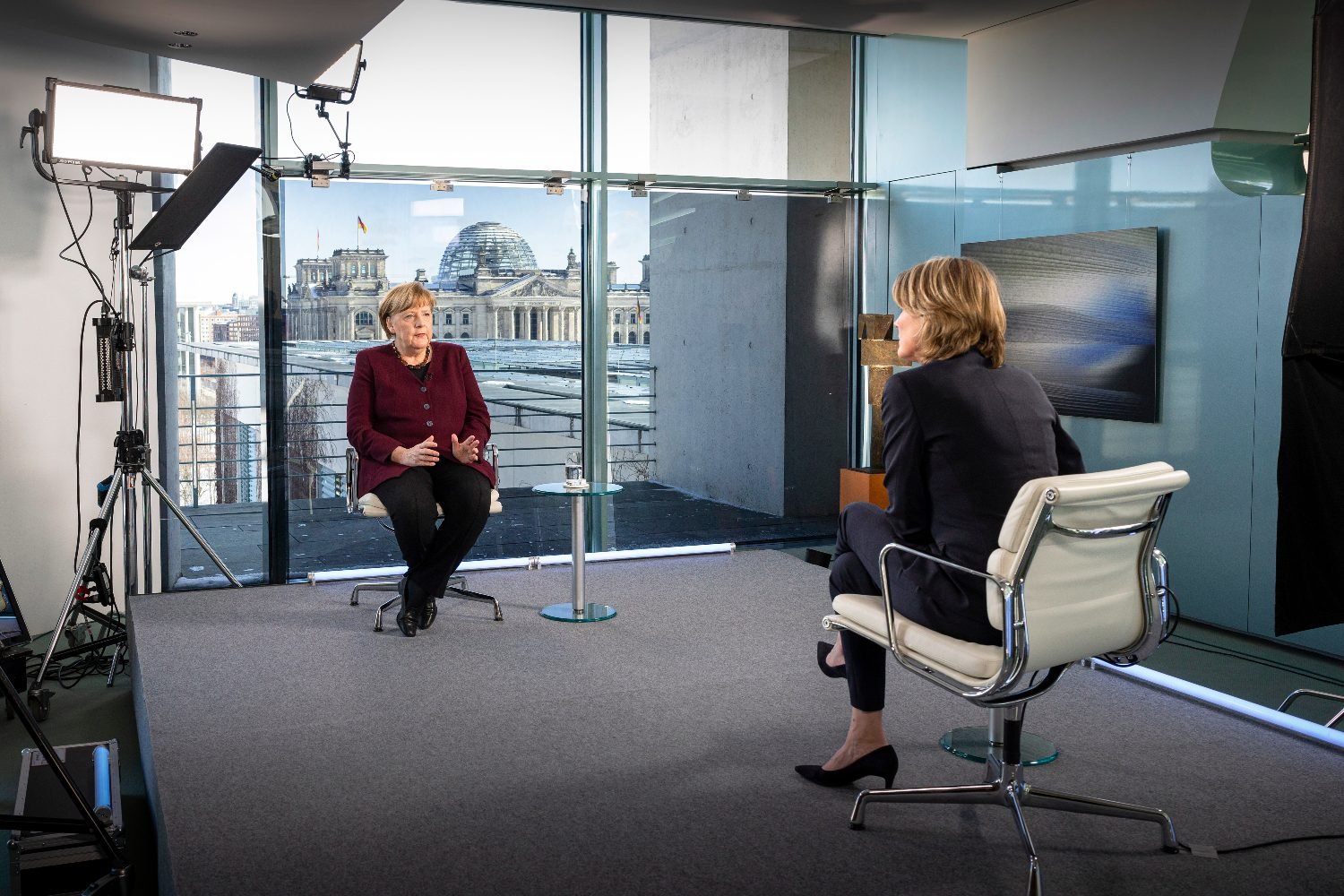In an interview with German broadcaster ZDF on Friday, Merkel outlined how Germany could open up step-by-step after the country reaches the goal of under 35 new coronavirus cases per 100,000 residents in seven days.
She said there would be an “infection cycle” lasting a fortnight to monitor each opening step.
“Whenever we remain stable at (an incidence of) 35 for 14 days, and the previous opening step has not led to an increase in the number of cases, then you can take the next step.”
Merkel said she saw “three strands” to the restricted areas. First, the higher classes of schools, vocational schools and universities; second, private contacts – how many people you can meet – and third, culture, “group sports” as well as restaurants and hotels.
“We have to decide politically which opening steps from which strand we want next now,” Merkel said. This will then be discussed at the next federal-state talks on March 3rd, she added.
READ ALSO: The charts and maps that show Germany's coronavirus situation
Previously, authorities had aimed for a 7-day incidence of 50 new infections per 100,000 people for restrictions to be relaxed. But another target of 35 has been added. Why?
The Chancellor said 35 had been introduced as a precautionary number.
“If you go below that number, you can think about taking larger steps to open up the system. That's why we have linked this with the retail trade, the galleries and the museums,” she said.
Merkel said the country had to be “particularly vigilant” due to more contagious coronavirus variants.
The Chancellor said Germany had to work hard to avoid a third wave.
It depends “on us and clever opening steps on whether we get through the pandemic without a large-scale third wave or whether we are too careless and then perhaps have rising case numbers again, which I would like to avoid,” she said.
“We have a difficult time behind us now and we are still in the middle of it,” Merkel added. “But we have at least halved the number of cases in the last three and a half weeks. That means we are on a downward slope.”
However, Merkel said she believed the threshold of 50 new infections per 100,000 inhabitants within seven days could soon be reached “if we still stick to the contact restrictions”.
“I believe we can reach the incidence as early as March 1st.”
'I did not have a good feeling in autumn'
In the interview, Merkel said she looked back critically at the approach taken by Germany last autumn, echoing what she said in the Bundestag on Thursday.
Measures were taken “too hesitantly”, said Merkel. “I did not have a good feeling at the time, but I supported the decision.”
The interview was published on the ZDF website on Friday afternoon.



 Please whitelist us to continue reading.
Please whitelist us to continue reading.
https://www.welt.de/politik/deutschland/plus225868061/Corona-Politik-Wie-das-Innenministerium-Wissenschaftler-einspannte.html